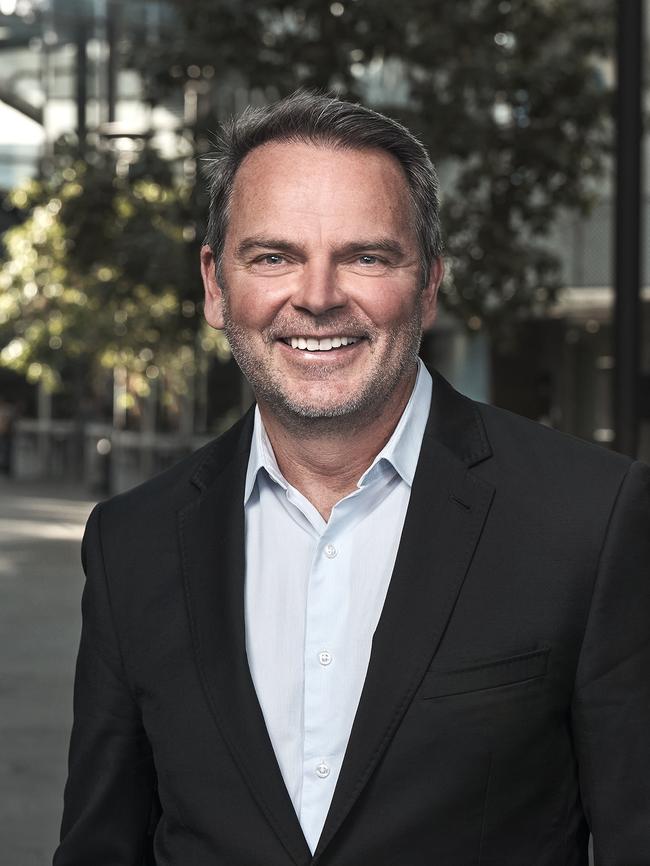Fairy-tale end: Qantas buy-up sees TripADeal founders exit
Qantas has paid a princely sum to take full control of Byron Bay-based online travel packages group TripADeal and appointed a new chief executive.
A Byron Bay start-up that captured the interest of Qantas in 2022 has turned founders Norm Black and Richard Johnston into multi-millionaires in a deal one has described as a “fairy tale”.
Mr Black and Mr Johnston launched travel company TripADeal in 2011, gradually building up the business to a local success story with 150 employees and bookings of $450m a year.
As travel boomed in the wake of the Covid pandemic, Qantas acquired a majority stake in TripADeal in 2022 for an undisclosed sum, and has now bought the remaining 49 per cent for $211m.
Under the terms of the sale, TripADeal will remain headquartered in Byron Bay, but Mr Black and Mr Johnston will exit the business, with chief operating officer Matt Wolfenden named as CEO.
Mr Black said it was a day of “mixed emotions” but he was satisfied the business would continue to flourish under Qantas’ ownership.
“All the core people that helped create the magic are here and continuing to stay on,” said Mr Black.
“They’re people who have dug the well with us and they’re here for the long haul. There will just be a couple of blokes not wandering around here every day.”

He said in many ways the story of TripADeal was “a bit of a fairy tale” that was not dissimilar to the Qantas story.
“I mean Qantas rose from nothing in Longreach. TripADeal rose from nothing in Byron Bay. Both were unlikely starting locations for really successful businesses,” Mr Black said.
“For me and Richard, probably the most rewarding part is that we’ve been able to do it in Byron Bay and there’s so many local kids who work in this business who would otherwise have ended up in cities.”
TripADeal will sit under Qantas Loyalty in the airline group, with about 80 per cent of the travel company’s customers Qantas frequent flyers.
Since the integration in 2022, billions of points have been earned and used through TripADeal packages, and Qantas Loyalty CEO Andrew Glance said they continued to see an enormous appetite for that product.
“I think it’s the convenience,” said Mr Glance.
“They appeal to a certain audience combining the tours, the flights and the accommodation into one curated package, it’s very much on trend.”

Holidays to Japan, Vietnam and African safaris were proving to be most in demand, driving up booking revenue to more than $450m in the last 12 months, double pre-Covid levels.
Mr Black said the growth since Qantas had come on board with its frequent flyer tie-up had surprised many people but not himself and Mr Johnston.
“We were always very confident that once you plugged the national carrier and that branding onto what was already a good offering, it was always going to turbocharge,” he said.
“Coming out of Covid what we found was that people wanted to travel so much more, not just once a year but three times a year.”
Mr Glance said the $211m paid by Qantas for the rest of TripADeal would not impact the airline’s bottom line for the 2024 financial year, because it was part of their budgeted capital expenditure of between $3bn and $3.2bn.
“Importantly the (Qantas) balance sheet is in extremely strong shape,” he added.
The conditions of the sale would restrict Mr Black and Mr Johnston from starting another travel business “for quite some time” with the pair considering other “disrupter ideas”.
“People say to me ‘you could do nothing now forever’ but I’m not wired like that,” said Mr Black.
“I don’t get caught up too much on the money side of things, but I hope that other people see it and think anything is possible. If you work hard enough, you have a good enough idea and you’re consistent, you can achieve great things still.”







To join the conversation, please log in. Don't have an account? Register
Join the conversation, you are commenting as Logout